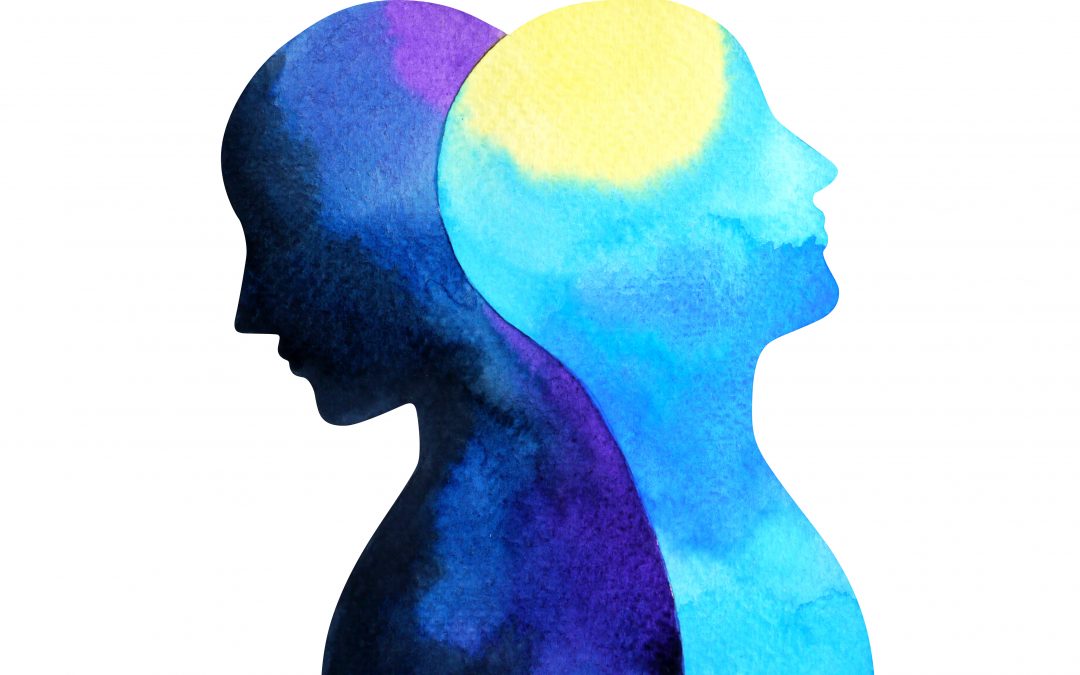People suffering from mental disorders such as depression, anxiety, and Post-Traumatic Stress Disorder (PTSD) can fall prey to mental illness due to many factors, including their environment, their physical health and biological makeup, and their genetics.
However, it’s vital to remember that you are not at fault for your condition. Certain factors that exacerbate your condition may be beyond your control – if you had abusive or neglectful parents, come from a dysfunctional home, have a complex medical history, your parents’ divorce was high-conflict, or you experienced a traumatic event, among many other scenarios, these are all circumstances beyond your control that might contribute to emotional difficulty/instability or mental illness.
Despite how you are affected by mental illness or how or when it began, however, the good news is that the proper help and care are available – but you ultimately need to take responsibility for countering your mental issues and improving your mental health.
Reasons for Taking Responsibility for Your Mental Illness
Many times, mental illnesses go undetected by the ones suffering and by the people they are closest to. This could be due to a lack of awareness; and because mental illnesses sometimes have no physical signs. It may also be because the person with the mental illness, or their loved ones/family members fear the stigma attached to the disorder or because they are not ready to deal with the repercussions of facing the issue. However, it is important to realize you are not alone. Whether you are experiencing emotional difficulties yourself, or whether it is someone you care about, there are a multitude of support systems and resources available for you once you make the decision to seek help.
First and foremost, it is important to pay attention to any changes in your mental health. Though this may seem difficult to do, it helps to have a good understanding of your family’s medical history. This may help you more quickly detect any early signs that might be present. Also, paying attention to your “norm” emotional baseline is helpful. If you deviate from this suddenly or for a significant period of time, you need to get immediate help in order to deal with the problem.
Also, if your friends, family and loved ones are noticing any changes in your attitude and behavior even if you don’t see a difference, chances are that you may need to take a moment to examine yourself closely, and if you aren’t sure, to seek professional advice from a physician, therapist or other mental health professional.
If you feel suicidal, or like harming yourself in any way, do not hesitate to call the crisis line at 1-800-560-4038.
How to Take Responsibility for Your Mental Illness
Dealing with mental illness as soon as you detect an issue is vital for fast treatment and improved results – but the process is not as simple as it seems.
It’s often a lifelong responsibility, as we have to assess our symptoms and how they fluctuate on a daily basis as per given scenarios, therapy, medications, etc. For instance, you can attend therapy sessions on a regular basis – daily, weekly, monthly, and assess how they are helping you cope with your mental illness. If you feel like therapy is not helping you the way it should, talk to your therapist about it. You might consider seeking another therapist’s input.
Similarly, if you are taking prescription medication, it is important to pay attention to whether these medications are helping improve your condition – are they leading you toward or away from mental stability? It might be that you need to consult with your primary care or mental health care provider to decide whether you need to change the dosage or type of medication if you are experiencing negative side effects or if you have other concerns. Remember, however, never to decide on your own to go off of a medication or change the dosage. In some instances, this can be dangerous. Always consult with your health care provider before making any changes.
Overall, the key is to be realistic and report your progress truthfully; if the therapy sessions and medications are not having any positive effect, you might need to find a new therapist, psychologist or psychiatrist.
Another way to help yourself is to find what coping mechanisms work for you and make them a part of your routine. This is also called self-care. This might include deep breathing, meditation, yoga, exercise, reading, caring for a pet, finding quiet time in a place that soothes you, getting regular massages or other treatments, finding a hobby that gives you pleasure, or spending time with loved ones who support you. Self-care will allow you to combat your mental illness and help you in times of distress. The bottom line is, if you take control of your mental illness and choose to get proper treatment, it is likely that your condition will improve over time.


Recent Comments